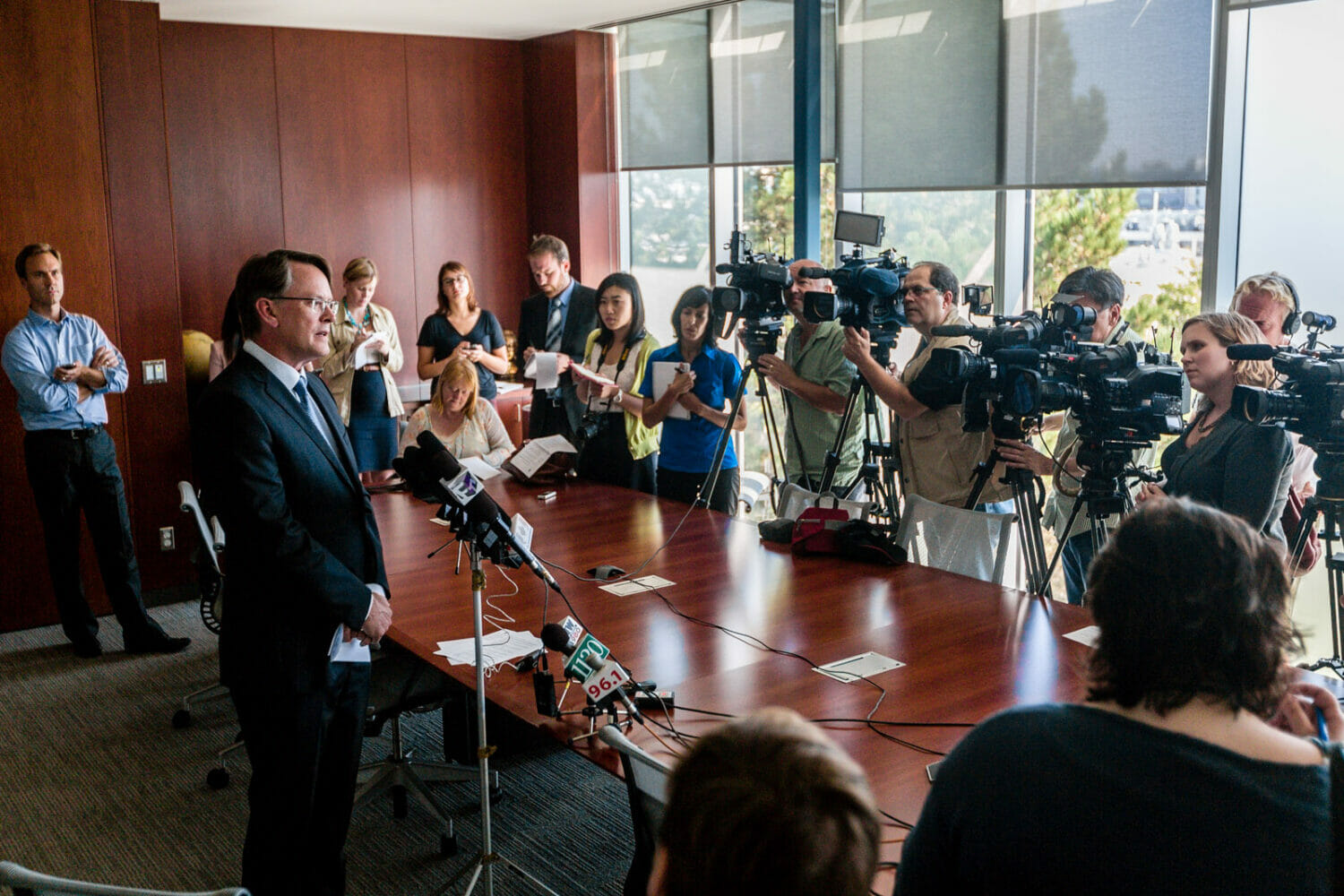
Pro-rape chant also sung at UBC
“An actual cheer at ubc,” a Sauder School of Business first-year wrote on Twitter
VANCOUVER (NUW) —“An actual cheer at ubc,” a Sauder School of Business first-year wrote on Twitter. “Y-O-U-N-G at UBC we like em young Y is for yourrr sister O is for ohh so tight U is for under age N is for noo consent G is for goo to jail.”
Students participating in Sauder FROSH, the long-running three-day orientation organized by the Commerce Undergraduate Society (CUS) at the University of British Columbia, were led in the above cheer by orientation leaders chosen by the CUS. A variation of the cheer received national attention last week after students were recorded on video reciting the cheer at Saint Mary’s University in Halifax.
Jacqueline Chen, FROSH co-chair, told The Ubyssey these chants have been going on for many years. While the CUS had been chastised in the past for the cheers, Chen said the undergraduate society now works to make sure the chant stays private.
“We had problems a very long time ago with the cheers being public in a sort of way and the dean seeing,” Chen said. “We let the groups know: if it happens in the group, it has to stay in the group.”
Chen added that while it was something organizers would prefer not happen, she said that the CUS was very concerned with keeping the chant out of the public eye.
“There’s only so much you can do with somebody who wants to publicly state something,” Chen said, “but we do get them to remove it [from social media] if we do find it…. That’s a big thing for us.”
Chen said there are serious consequences for a FROSH leader who is publicly exposed leading the chant. The punishments range from getting blacklisted from future FROSH events to being dealt with by the CUS or the school’s dean.
But when the cheer doesn’t make it into the public eye, Chen said organizers of FROSH are more passive.
“I think it’s all passed down year after year … from forever, I guess” Chen said. “It’s not something we can control, to be honest.”
Chen added that she was not the sole organizer of the FROSH programming, and the event was under the portfolio of CUS VP Engagement Gillian Ong.
“Whatever words come out of the leaders’ mouth we cannot directly control,” said Ong.
The undergraduate society released a statement saying the CUS is committed to a safe environment for frosh events.
CUS president Enzo Woo said he was aware the cheers went on and while he did not approve of them, the responsibility for stopping them from taking place fell to the individual FROSH leaders.
“While we can monitor the formal events that happen at FROSH, we can’t always see what happens behind the doors, and therefore it’s up to the FROSH leaders to provide a safe environment,” Woo said.
Chen said the selection process for FROSH leaders was rigorous, and they went through training similar to that of Imagine Day volunteers, including equity training.
Chelsea Maguddayao, a first-year commerce student, confirmed the existence of the cheer and the FROSH leaders’ efforts to keep it private.
“We sang it on the bus,” she said. “They specifically told us right before we cheered and everything that you can only cheer it on the bus and you can’t go elsewhere and cheer it outside.”
Maguddayao said she wasn’t especially bothered by the cheer.
“It was just for fun, right? It was only on the bus so I didn’t think of it as a big deal, to be honest,” she said. “It was just kind of like, ‘Let’s have a good time, let’s go all out, it’s frosh weekend.’”
In an interview with The Ubyssey, Chen wondered whether Sauder faculty and deans had failed to intervene because no students had complained.
“I’m sure by this point they know things like this happen,” Chen said. “They do know about things like cheers and them sometimes being derogatory.”
Sauder spokesperson Andrew Riley said he was unaware of such a cheer.
“As far as I know, this issue doesn’t exist,” Riley said. “I’ve never heard anything about this before.”
Assistant Sauder dean Pam Lim released a brief written statement saying that such a cheer would be “completely inconsistent” with the values of the school and the instruction FROSH organizers receive.
“We have no knowledge of any inappropriate behaviour by our students,” the statement read.
Jeffery Wang, a second-year commerce student who volunteered at FROSH, confirmed that the cheer occurred.
“Of course, yeah, that’s done,” Wang said of the cheer. “It was only in the buses. It was only in secluded, more isolated areas.”
Wang said that while he didn’t support the underlying message of the cheer, he felt comfortable singing it.
“I’m not saying that underage rape is okay or it should be encouraged, but [the cheer] maybe gets people out of their personal boundaries and bubbles, you know?” Wang said.
According to multiple sources, the cheer has a long history at Sauder — perhaps as long as 10 or 20 years, according to Wang.
One first-year who heard the cheer recalled some students being bothered by it.
“A few of them made their feelings known and then it wasn’t brought up,” said first-year Commerce student Alex Dye.
Anisa Mottahed, manager of the Sexual Assault Service Centre on campus, said FROSH should seek other ways to engage first-years.
“I don’t understand why sexualized violence should be pulled into frosh chants,” she said. “We’re really surprised that it’s happening, and saddened.”
UBC professor Scott Anderson, an expert in sexual harassment and assault, said the cheer did more damage than those leading it probably realized. He said for those who have experienced sexual assault or been raped, the cheer trivialized their suffering.
“It reinforces their stigmatization and seems to make them into the problem,” Anderson said. “It makes it seem as though someone who complains that they have been subjected to what the chant suggests is herself not part of the fun, making a big deal out of nothing, and trying to spoil other people’s fun.”
He added that issues of privilege also factor into who leads these chants, and why others feel compelled to sing along.
“Those who are in position to lead such chants are usually men [and] are usually in favoured positions in society, and so there’s a reason to want to bond with them and to show that you get the joke and that you are willing to curry favor by being transgressive and willing to hurt other people’s feelings.”
Anderson said that there are two groups of people who commit sexual assault. The first group understands that what they’re doing is wrong, and are purely predatory. In contrast, the second group doesn’t fully understand the damage they do by breaching consent.
Anderson said for that second group, cheers like the Y-O-U-N-G cheer reinforce the idea that society doesn’t take consent or sexual assault and rape seriously.
“We have to hope that education and knowledge are an antidote to this,” Anderson said.
–With files from Sarah Bigam
Editor’s Note: After this story’s publication on The Ubyssey website Sept. 6, the university has pledged to conduct a thorough investigation of the incident. The Commerce University Society and AMS, the school’s student union, have apologized. CUS leaders will be attending sensitivity training.
Arno Rosenfeld is the features editor at The Ubyssey.







